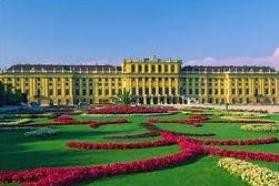First posted: 11 April 2012
Concerning the generics market in Austria, view the following research article:
Potential savings of Euros 72 million with more generics use in three therapeutic areas
Concerning sickness funds in Austria, view the following news articles:
How regional sickness funds in Austria encourage more rational prescribing
Strategies used by sickness funds to increase generics prescribing in Austria
Austria is a developing market* in the use of generic medicines. Generic medicines have been in use in Austria for more than 20 years [1].
Austria has drawn on supply-side policies relating to pricing and reimbursement in order to develop its generic medicines market. However, limiting policy to supply-side measures only, as is the case in Austria, is insufficient in realising the full potential of a generic medicines market [2].
In comparison with other Western European countries, Austria is one of the countries spending rather a lot on health care as a whole, but relatively little on medicines. In 2008, Austria spent 10.5% of its gross domestic product on health care, but only 12.6% of the total healthcare budget was spent on medicines [3].
In 2008, Euros 3.03 billion was spent on medicines by Austria, representing 7.4% more than in 2007. Expenditure on prescription medicines over the last five years had been rising at a steady rate [3].
The Austrian generics market is small by international standards. In 2008, 30% of prescriptions in Austria were dispensed as generics, accounting for 19.5% of the market value [3].
Austria has pricing regulation of generic medicines, which means that penetration of generic medicines is less successful than in countries that permit (relatively) free pricing of medicines, e.g. Germany, The Netherlands, UK [4].
There are approximately 3,341 generic medicines currently registered in Austria [5].
Generic drug entry leads to large generics price decreases in Austria. Average prices for medicines losing exclusivity appear to drop by more than 50% within the first two years [6].
Generics are well accepted by physicians [1]. In 2007, around 23 million packs of generic medicines were prescribed by Austrian physicians [1].
Parallel trade plays only a minor role in Austria as the overall manufacturer price level in Austria is rather low compared to other countries and there are no incentives for physicians, patients or pharmacists to use parallel imports [7].
Key facts – contribution of generic medicines to Austria
- Generics competition creates, through continuous price reductions, long-term savings for the Austrian healthcare system [8].
- In the last five years, total savings of around Euros 360 million have been brought about by the use of generic drugs [1].
- The generics industry supplies 30% of dispensed medicines at only 19.5% of the cost [3].
- In 2007 and 2008, the average price of a branded medicine in Austria was Euros 11.32 compared to Euros 5.56 for a generic medicine [9].
- In 2010, an average of Euros 258 per head of population per year was spent on medicines in Austria compared to an average of Euros 382 in Western Europe [3, 10, 11].
- Increased substitution of generics for the top 10 originator medicines could reduce public expenditure on the originator medicines in Austria by 27% [4].
- A reference pricing system is not in place at the moment [12].
* In countries with developing generic medicines markets, market share of generic medicines does not surpass 40% [13].
References
1. Österreichische Generikaverband (OEGV) [Austrian Generics Association]. Generika [Generics] [monograph on the Internet] Vienna, Austria, OEGV [cited 2012 Apr 13]. German. Available from: www.generikaverband.at/generika
2. Simoens S, De Coster S. Sustaining Generic Medicines Markets in Europe. April 2006. [monograph on the Internet]. Brussels, Belgium, European Generic medicines Association (EGA) [cited 2012 Apr 13]. Available from: www.egagenerics.com/doc/simoens-report_2006-04.pdf
3. Association of the Austrian Pharmaceutical Industry (Pharmig). Medicinal products and health care in Austria: Facts 2008/Edition 2010.
4. Simoens S. Generic medicine pricing in Europe: current issues and future perspective. J Med Econ.2008;11(1):171-5.
5. Bundesministerium für Gesundheit Familie und Jugend (BMGFJ) [Federal Ministry of Health, Family and Youth] Generika-Zulassung in Österreich [Generics in Austria] [monograph on the Internet] Vienna, Austria, BMGFJ [cited 2012 Apr 13]. German. Available from: www.bmgfj.gv.at/home/Schwerpunkte/Krankheiten/Newsletter_Public_Health/Archiv_2010/Generika_Zulassung_in_Oesterreich
6. European Commission Competition DG. Pharmaceutical Sector Inquiry Preliminary Report. 28 Nov 2008.
7. Österreichisches Bundesinstitut für Gesundheitswesen (ÖBIG). Surveying, Assessing and Analysing the Pharmaceutical Sector in the 25 EU Member States. July 2006.
8. Österreichische Generikaverband (OEGV) [Austrian Generics Association]. OEGV Facts. Preisvorteil von Generika. [Price advantage of generics] [monograph on the Internet] Vienna, Austria, BMGFJ [cited 2012 Apr 13]. German. Available from: www.generikaverband.at/media/generika/de_at/OEGVfacts/Facts_Preisvorteil.pdf
9. Österreichische Generikaverband (OEGV) [Austrian Generics Association]. Generika kosten nur die Hälfte [Generics cost only half] [monograph on the Internet] Vienna, Austria, OEGV [cited 2012 Apr 13]. German. Available from: www.generikaverband.at/generika/preis
10. Statistik Austria. Bevölkerungsstand 1.1.2008. Vienna 2008.
11. ABPI. Did you know? Facts and figures about the pharmaceutical industry in the UK. [page on the Internet]., UK, ABPI [cited 2012 Apr 13]. Available from: www.abpi.org.uk/our-work/library/industry/Documents/Did%20you%20know_Jan11.pdf
12. International Society for Pharmacoeconomics and Outcomes Research (ISPOR). ISPOR global health care systems roadmap: Austria – Pharmaceuticals. October 2009.
13. Simoens S. International comparison of generic medicine prices. Curr Med Res Opin. 2007;23(11):2647-54.











